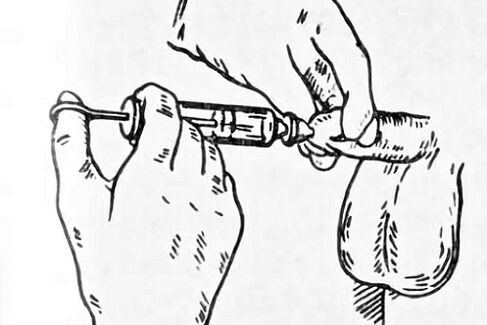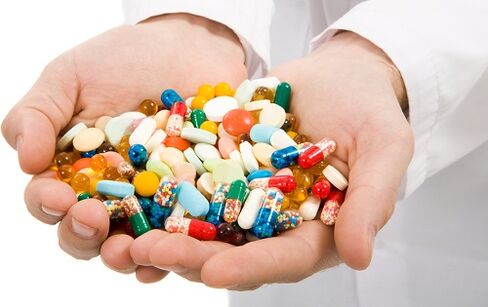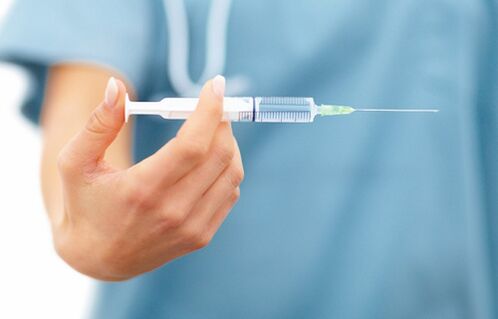Prostatitis has been increasingly diagnosed recently. But if the disease was detected early in men over 40, it tends to occur in younger people today. The reasons may be infection, virus, weakened immunity, sedentary lifestyle, etc. Therefore, the drugs for the treatment of prostatitis will be varied. You can only choose the most effective method with your doctor after a thorough examination.

type of drug
All drugs are released in various forms. For male prostatitis, injections, tablets, suppositories, ointments, and infusion solutions are available. In the acute phase, prescriptions are injections, while drugs for chronic prostatitis most often come in the form of tablets and capsules. Among them, antibiotics and anti-inflammatory drugs are mandatory. The former includes the most potent drugs, such as fluoroquinolones, penicillins, and tetracyclines. Other antibiotics may be prescribed if a specific infection is found.
Anti-inflammatory drugs are used in any form of pathology, i. e. in the presence and absence of bacteria. Their main goal is to reduce inflammation and improve bodily function. You can also take pain relievers and vitamins in tablet form. But immune modulators and drugs that speed up regeneration are more often produced in the form of injections. This injection is usually given outside the acute phase to restore prostate tissue.
In addition to the above, suppositories and creams for rectal administration are also used to treat men. These are the most convenient forms and allow you to act directly on the inflammatory lesions. Suppositories come in the form of anti-inflammatory drugs, pain relievers, antibiotics, and the like.

In some cases, drips may be required. The drug is injected into the urethra in a volume of no more than 5 ml.
The choice of the drug form can only be made together with the doctor according to the pathological stage and its characteristics. It is impossible to replace injections with tablets or suppositories yourself.
main principles of treatment
To achieve the desired effect, it is necessary to use complex treatments. You can't be limited to antibiotics or painkillers. Typically, the regimen for acute courses includes the following drugs:
- antibiotics to eliminate pathogenic flora;
- anti-inflammatory drugs;
- Painkillers and antispasmodics for severe pain;
- Suppositories relieve local inflammation.

In addition to the above, other groups of drugs, such as hormonal agents, alpha-blockers, immunomodulators, muscle relaxants, and the like, may also be used. Each drug has its own duration and dosage. They are determined based on the properties of the agent and the effects it has.
Antimicrobial agents must be used when bacterial prostatitis is detected in men. For example, they are taken in chronic form for a week to two months. For severe inflammation, injections can be used, but tablets are still more commonly used. The choice is made based on the available flora and the individual characteristics of the patient.
Anti-inflammatory drugs are also used for any form of prostatitis. They will help relieve inflammation even in the presence of stones in the prostate. Enrolment is usually no longer than 14 days, but longer courses are available.
Painkillers are only used for severe pain. Usually, the three-day intake during the acute phase is sufficient. Both tablets and injections are available. In the presence of a chronic course in men, these drugs are not required.

Alpha-blockers and pain relievers are used for 2-3 days during acute procedures. The same goes for antispasmodics.
At the same time, there are also drugs that are taken for a long time, regardless of the pathological stage. First, men should regularly take vitamins, trace elements, and immunomodulator courses twice a year. Hormones are prescribed by a doctor only after a thorough examination.
Throughout your life, you can regularly take courses with herbal preparations and traditional medicine recipes. They will help normalize the work of the glands and strengthen the immune system, thereby reducing the risk of relapse.
Drug Name
Among the wide variety of drugs, one can distinguish in particular those that are very effective and have proven themselves in men with acute or chronic prostatitis. Antibacterials of the penicillin group are often prescribed and work well against large numbers of bacteria and cause no side effects.
In addition, other drugs such as penicillin in injection form, tetracycline in tablets, antispasmodics, etc. may also be used. Also, there are many analogs, so only a doctor can name a suitable drug.
Along with antibacterial drugs, drugs with significant antibacterial and anti-inflammatory properties are used. In addition, it normalizes the flow of urine and blood circulation in the tissues. Promotes the reabsorption of blood clots and stimulates the work of muscle tissue. Used for chronic forms of disease. It can also be prescribed after surgery.
other medicines
In addition to the above, other drugs can be used for prostatitis in men. Therefore, the prescription is homeopathy, which is able to relieve inflammation and improve blood circulation in the tissues. At the same time, swelling is reduced, cell nutrition is improved, and urination and secretion are normal. It is only used as part of a complex. It can be taken for a long time, up to six months. The drug is well tolerated without any side effects.
Natural preparations can be prescribed that contain only botanical ingredients, making the product safe. Allows you to quickly eliminate inflammation and normalize gland function.
All medications for men should be prescribed by a doctor after the examination. Each drug has its own indications and characteristics of use. Incorrect use of them can lead to worsening of the condition and the development of side effects.






























